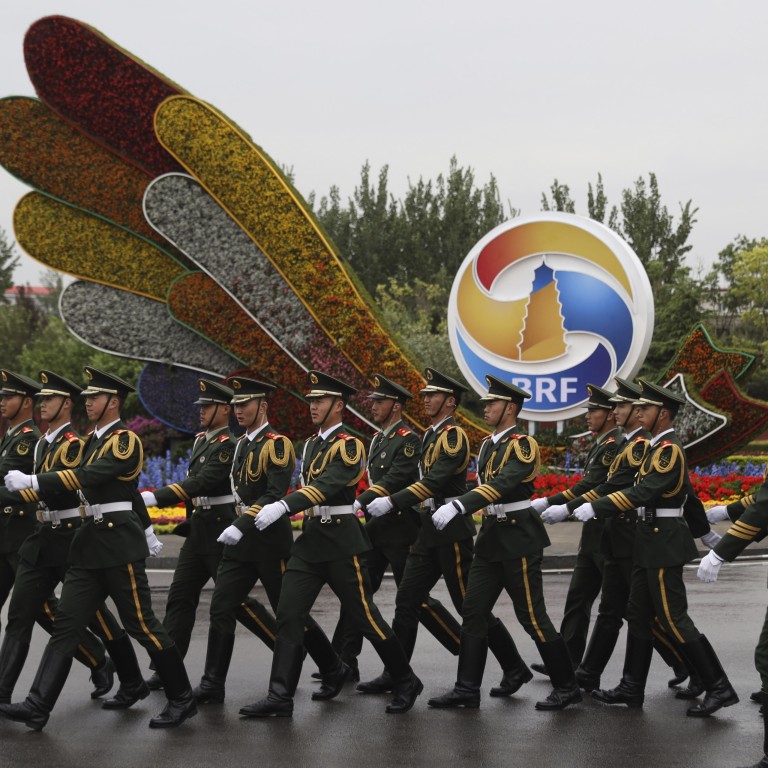
Exclusive | China aims to address ‘debt trap’ criticism at second Belt and Road Forum
- Beijing seeks to resolve growing concerns about its global infrastructure push in a communique that 37 world leaders will consider on Saturday
- Greater emphasis said to be placed on projects’ financial and environmental sustainability
China is working to address mounting concern that its ambitious infrastructure drive creates debt traps for participating countries, according to people involved drafting a joint communique to be considered by world leaders at the Belt and Road Forum in Beijing this week.
President Xi Jinping’s multibillion-dollar “Belt and Road Initiative”, which aims to link China with Asia and Europe through ports, roads, airports, pipelines and other infrastructure projects, has also raised worries about what critics have called a lack of transparency related to project development, land requisition, debt pricing and other contractual issues.
An official of another country told the South China Morning Post that Beijing had noted the concerns and would address them in the communique that the 37 leaders were expected to approve at the end of the forum on Saturday.
Language related to debt sustainability, transparency and the rule of law would be included in the document, according to a person involved in drafting the document, which has not been made public.
The joint communique would put greater emphasis on the infrastructure projects’ financial and environmental sustainability than that contained in the inaugural summit statement two years ago, according to a third person who has seen the draft document.
The work will also acknowledge the importance of debt sustainability, something not mentioned in the previous communique.
“It was much better than the joint communique in 2017 [which] wasn’t as clear,” the official said.
“Lessons have been learned from the experiences of other countries. So there is now more emphasis on financial sustainability to make sure that people can repay.”
China tipped to counter critics with showcase belt and road projects
Chinese officials have been scrambling to clear controversies that the initiative is a scheme to entrap nations into debt. Speaking at a panel discussion on the forum on Thursday, Finance Minister Liu Kun said China would make the initiative sustainable and lower the debt risk. Central bank governor Yi Gang said at the same event that China would improve funding arrangements for belt and road projects.

In all, 37 foreign leaders are expected to attend the three-day conference, which opened on Thursday, up from 29 who attended the inaugural event in 2017. And 5,000 representatives from 150 countries will attend.
While the United States is sending low-level officials to the event, many Western countries, including Italy, Austria and Switzerland, will be represented by their heads of state.

The official said that as more countries came to the forum, China would be increasingly pushed to confront the greatest concerns about the initiative.
“They need to accommodate Asian, European, Chinese perspectives and interests. It’s not easy,” the official said.
“A lot of people spoke up. There were changes to the draft. It wasn’t smooth but in the end, they got it worked out.”
To press on with belt and road plan, China has to think small
Shi Yinhong, an international relations professor at Renmin University in Beijing, said the joint assurance of sustainable financing was “an emphasised justification” of China’s belt and road practices.
“It aims to assure more and more countries that China’s approach to investing will become better to reverse some worried or resented aspect in the future,” he said.
Beijing might also be able to convince the international community that the US, a fierce critic of the belt and road scheme, was wrong if it could successfully resolve concerns over the alleged debt trap, he said.
Additional reporting by Zhenhua Lu

